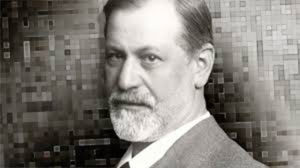Proton pseudos, point de départ nouveau en métapsychologie
Résumé
L'auteur tente ici de montrer, à partir de quelques textes de Winnicott, de Freud et de Melanie Klein, que les fondements épistémologiques sur lesquels repose la théorisation métapsychologique aboutit à une représentation de l'homme et de son univers profondément insatisfaisante.
Démarche similaire à celle de nombreuses autres disciplines dont l'exemple le plus manifeste réside dans cet ensemble connu actuellement sous le nom de "Théorie du Chaos". Mouvement amorcé d'ailleurs il y a plusieurs décennies par Husserl et par tous les tenants du mouvement phénoménologique.
Qui plus est, selon l'auteur, ces fondements épistémologiques mis en cause représenteraient eux-mêmes une réalisation pathologique trouvant son origine dans les tout premiers moments de la vie. Il s'en suivrait que toute formulation reposant sur cette optique regrédiente, allant en sens inverse de ta tâche thérapeutique, progrédiente, aboutirait nécessairement à des contradictions insurmontables.
Un nouveau point de départ, un autre instrument philosophique est alors proposé ouvrant la voie à une théorisation différente, davantage en harmonie avec les constatations cliniques.
Samenvatting
Vertrekkend van teksten van Winnicott, Freud en Melanie Klein, tracht de auteur aan te tonen dat de epistemologische funderingen waarop de metapsychologische theorievorming steunt, leiden naar een voorstelling van de mens die ons grondig onvoldaan laat.
Een dergelijke gang van zaken vinden we terug in talrijke andere disciplines. Het duidelijkste voorbeeld hiervan vinden we in het geheel dat op dit ogenblik gekend is als de "Theorie van de Chaos". Deze beweging werd trouwens, meerdere decennia geleden, door Husserl en al de aanhangers van de phenomenologische beweging op gang gebracht. Meer nog, deze betwiste epistemologische funderingen zouden, volgens de auteur, zelf een pathologische realisatie zijn waarvan de oorsprong terug zou gaan op de allereerste levensmomenten. Daaruit zou volgen dat iedere formulering, die op deze regrediërende zienswijze berust en die in tegengestelde richting gaat van de voorwaarts schrijdende therapeutische taak, noodzakelijk uitmondt in onoverkomelijke tegenstellingen.
Een nieuw vertrekpunt, een ander filosofisch instrument, wordt dan voorgesteld dat moet leiden naar een andere theorievorming, die meer in harmonie is met de klinische bevindingen.
Summary
The author tries to show here, starting from some texts of Winnicott, Freud and Melanie Klein, that the epistemological foundations upon which metapsychological theorisation rests end up in a picture of man and his universe profoundly unsatisfactory.
This undertaking is similar to that which is seen in several other disciplines, the most obvious example being the group known generally at the present time under the name of "Theory of Chaos". This movement started with Husserl and the supporters of the phenomenological movement elsewhere several decades ago.
What is more, according to the author, these epistomelogical foundations in question themelves represented a pathological creation originating in the very first moments of life. It would follow from this that every formulation resting upon this regressive point of view and going in the direction opposite to the progressive therapeutic task ended in insurmountable contradictions.
A new starting point, another philosophic instrument, is then proposed, opening the way to a theorisation which is different, but more than that, which is in harmony with clinical observations





